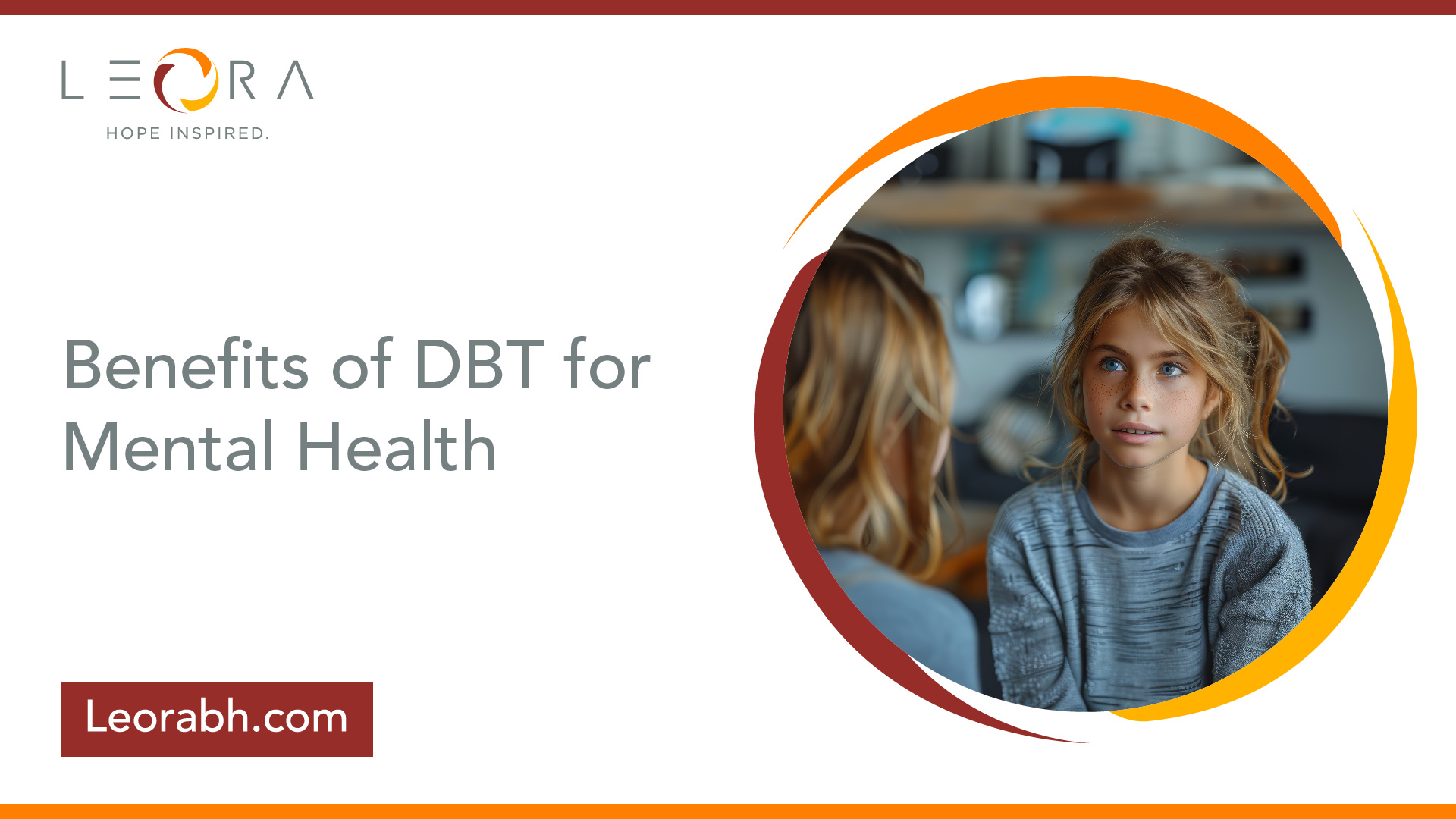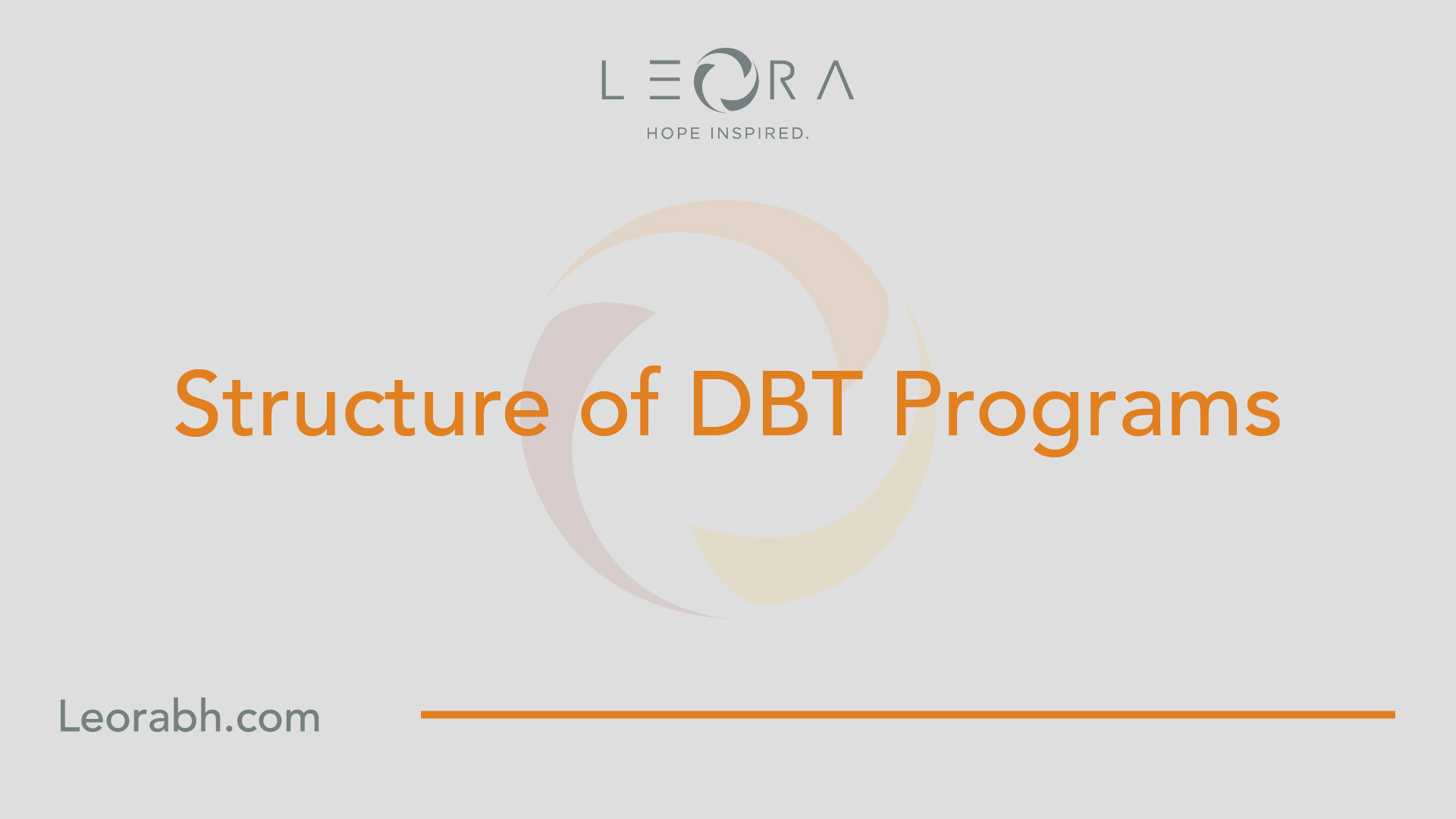Benefits of DBT for Mental Health
Discover the benefits of DBT for mental health - from reduced medication use to crisis management protocols, all in one insightful read!
Understanding DBT
When exploring the realm of Dialectical Behavioral Therapy (DBT), it is crucial to grasp the fundamental concepts that underlie this transformative form of therapy. This section delves into the definition of DBT and provides insight into its origin and development.

Definition of DBT
Dialectical behavior therapy (DBT) is a structured outpatient treatment model pioneered by Dr. Marsha Linehan to address the complexities of borderline personality disorder (BPD) National Library of Medicine. Originally formulated to aid those with BPD, DBT has since evolved to cater to individuals facing an array of mental health challenges. With its foundation rooted in acceptance and change, DBT emphasizes the cultivation of emotional regulation skills and the recognition of self-worth without judgment WebMD.
Origin and Development
Initially conceptualized as a treatment modality for borderline personality disorder, DBT has grown to be recognized as an effective intervention by bodies such as the American Psychiatric Association WebMD. Through the years, DBT has transitioned to accommodate a diverse range of mental health conditions due to its strong focus on fostering emotion regulation capabilities Psychology Today. Supported by a robust evidence base, DBT has proven its efficacy not only in managing BPD but also in providing relief for various clinical populations PubMed Central.
By understanding the origins and evolution of DBT, individuals can appreciate the depth and breadth of this evidence-based therapy, which continues to make a significant impact on mental health treatment across different age groups and diagnoses. For more insights into the key principles of DBT, refer to our article on key principles of DBT explained.

Benefits of DBT
Dialectical Behavioral Therapy (DBT) has proven to be highly beneficial for mental health, offering a range of advantages for those undergoing treatment. The efficacy of DBT is particularly noteworthy for specific mental health conditions, with a focus on Borderline Personality Disorder (BPD), and its potential for expansion to other conditions.
Efficacy for BPD
DBT is recognized as a comprehensive, evidence-based treatment primarily for Borderline Personality Disorder (BPD). Research published in PubMed Central demonstrates that DBT is effective in reducing parasuicidal behavior, anger issues, social functioning challenges, and hospitalization days among individuals diagnosed with BPD. Compared to treatment-as-usual (TAU), DBT has shown significant improvements in managing BPD symptoms and enhancing overall well-being.
Moreover, a study conducted in the United Kingdom highlighted the prevalence of psychotropic medication use among BPD patients. Approximately 45% were prescribed second-generation antipsychotics, 40% received mood stabilizers, and 20% were on clozapine. Polypharmacy was common, with 62% on 2 or more medications and 24% on 3 or more medications, underscoring the complexity of treatment approaches for BPD [1].
Expansion to Other Conditions
While DBT was initially developed to target Borderline Personality Disorder, its efficacy has led to its utilization in managing various mental health issues across different age groups. The therapy has been endorsed by the American Psychiatric Association as a valuable treatment for BPD, emphasizing its role in supporting emotional regulation and overall mental well-being [2].
Research findings, as outlined in National Library of Medicine, indicate that DBT extends its benefits beyond BPD, demonstrating effectiveness in comorbid substance use disorders, binge eating disorder, depression, and bulimia nervosa. The therapy has showcased positive outcomes in reducing parasuicidal behaviors, enhancing treatment adherence, and minimizing hospitalizations, presenting a versatile and impactful approach to mental health treatment.
The benefits of DBT extend not only to BPD but also to a range of mental health conditions, highlighting its versatility and effectiveness in enhancing the well-being of individuals experiencing diverse psychological challenges.

Structure of DBT Programs
In understanding the structure of Dialectical Behavioral Therapy (DBT) programs, it's essential to explore the key components of DBT therapy and the typical duration of treatment.
Components of DBT Therapy
DBT involves a structured process that integrates multiple components to provide comprehensive care for individuals dealing with mental health challenges. The main components of a DBT program typically include:
- Individual Therapy Sessions: In these one-on-one sessions, individuals work with a therapist to address personal struggles, set therapeutic goals collaboratively, and track emotions and actions.
- Group Training: DBT often includes skills training groups where participants learn and practice various behavioral skills aimed at enhancing emotional regulation, interpersonal effectiveness, distress tolerance, and mindfulness.
- Phone Crisis Coaching: Individuals undergoing DBT may have access to phone consultations for crisis situations. This immediate support can help individuals manage intense emotions and prevent escalation.
- DBT Workbooks and Worksheets: Therapists may provide workbooks and worksheets to individuals to reinforce skills learned in therapy and facilitate ongoing practice outside of sessions.
- Medication Management: In some cases, medication may complement DBT as part of a comprehensive treatment plan. Medication management is overseen by a qualified healthcare provider.
- Therapist Consultation Team: Therapists conducting DBT often engage in regular consultations to ensure a cohesive treatment approach and facilitate the exchange of insights and strategies for treating individuals effectively.
Duration of Treatment
The duration of a DBT program can vary based on individual needs and progress. However, a typical DBT therapy plan often consists of:
- Weekly Individual Therapy Sessions: Individuals usually attend weekly individual therapy sessions that last approximately 40 to 60 minutes. During these sessions, they work closely with their therapist to identify behavioral patterns, set goals, and track progress.
- Group Skills Training: Alongside individual therapy, individuals participate in group skills training sessions where they learn and practice DBT skills with other participants. These group sessions provide a supportive environment for skill-building and peer interaction.
- Regular Therapeutic Consultations: Collaboration among therapists and consultation team meetings play a crucial role in ensuring a holistic and coordinated approach to treatment. These consultations allow for the sharing of expertise and insights to support the individual in managing their mental health effectively.
By incorporating these key components and maintaining regular therapy sessions, individuals undergoing DBT can develop essential skills, enhance emotional regulation, improve relationships, and work towards achieving their therapeutic goals in a structured and supportive environment.
Incorporating Mindfulness in DBT
Within the realm of Dialectical Behavioral Therapy (introduction to dialectical behavioral therapy), the integration of mindfulness plays a pivotal role in enhancing therapeutic outcomes for individuals facing mental health challenges. This section delves into the significance of mindfulness in DBT, its impact on clinical results, and its role as a skill set within the therapy framework.
Role of Mindfulness
Mindfulness, as implemented in Dialectical Behavior Therapy (DBT), emphasizes the cultivation of present-moment awareness, acceptance of emotions, thoughts, and sensations without judgment, and the development of a non-reactive stance towards them [3]. Unlike other therapeutic techniques like Mindfulness-Based Cognitive Therapy (MBCT) or Acceptance and Commitment Therapy (ACT), DBT views mindfulness as a series of skills that can be learned and applied to manage distressing emotions effectively.
The incorporation of mindfulness practices in DBT aims to increase individuals' self-reported mindfulness levels, enhance non-judgmental awareness, and improve psychological aspects such as attention span. By fostering a mindset of acceptance towards emotional states, individuals undergoing DBT can develop the capacity to navigate challenging situations with greater equanimity.
Impact on Clinical Outcomes
Studies suggest that the integration of mindfulness training within DBT leads to improved clinical outcomes, particularly in conditions like Borderline Personality Disorder. Post exposure to DBT skills training, an increase in mindfulness levels was correlated with enhanced symptom reduction, with specific facets of mindfulness—such as accepting without judgment and non-reactivity—significantly linked to decreased BPD symptoms.
The direct impact of mindfulness cultivation in DBT manifests in the ability to enhance adaptive coping mechanisms, reduce emotional reactivity, and promote a sense of emotional regulation. By honing mindfulness skills, individuals are better equipped to stay present-focused, lower emotional arousal during distressing moments, and access healthier coping strategies to manage challenging emotions effectively.
The utilization of mindfulness techniques as an integral component of DBT not only enhances self-awareness and emotional regulation but also empowers individuals to navigate the complexities of their mental health journey with resilience and self-compassion. By embracing mindfulness within the context of DBT, individuals can foster a deeper understanding of their emotional landscape and acquire the tools needed to foster lasting mental well-being.
Online Delivery of DBT
In the realm of mental healthcare, the evolution of therapeutic services has witnessed the integration of technology, offering innovative approaches like online delivery of Dialectical Behavioral Therapy (DBT). This section explores the feasibility, effectiveness, accessibility, and acceptability of online DBT programs.
Feasibility and Effectiveness
Research studies, as highlighted by NCBI, have indicated that online delivery of DBT programs is not only feasible but can also be as safe and effective as traditional face-to-face interventions. Despite certain challenges, online DBT has shown promising results in enhancing therapeutic outcomes for individuals seeking mental health support.
By leveraging digital platforms, individuals undergoing DBT treatment can access therapy sessions remotely, allowing for more flexibility and convenience. The interactive nature of online DBT programs enables real-time communication between clients and therapists, fostering a sense of connection and support crucial for successful therapy outcomes.
Accessibility and Acceptability
The online delivery of DBT has been recognized for its enhanced accessibility and acceptability among clients, as noted in the findings by NCBI. Compared to traditional in-person sessions, online DBT programs have shown higher attendance rates, especially during times of limited mobility or social distancing, such as the challenges posed by the COVID-19 pandemic.
The convenience of accessing therapy from the comfort of one's home eliminates geographical barriers and transportation constraints that may inhibit individuals from seeking traditional therapy. This increased accessibility to DBT services promotes greater engagement and continuity of care, contributing to improved mental health outcomes for individuals navigating emotional and behavioral challenges.
As the mental health landscape continues to evolve, the integration of online DBT programs offers a promising avenue for expanding access to evidence-based therapies. With ongoing research and advancements in telehealth technologies, online DBT stands as a viable and effective option in promoting mental well-being and resilience in individuals seeking support for emotional regulation and behavioral change.
DBT Research Findings
Dialectical Behavioral Therapy (DBT) has garnered significant attention in the field of mental health due to its benefits for mental health and its efficacy across various conditions. Research findings have highlighted the positive impact of DBT on reducing psychotropic medication use and its effectiveness in treating comorbid substance use disorders.
Reduction in Psychotropic Medication Use
Studies have shown a significant reduction in the use of psychotropic medications among patients undergoing DBT treatment. Particularly in individuals with Borderline Personality Disorder (BPD), DBT has been effective in lowering the need for medications and medical care by up to 90% [1]. This reduction includes a decrease in the use of Selective Serotonin Reuptake Inhibitors (SSRIs) following DBT therapy.
Effectiveness in Comorbid Substance Use Disorders
DBT has demonstrated effectiveness in treating comorbid substance use disorders alongside mental health conditions. It has been found to be more effective than community-based treatment-as-usual in reducing parasuicidal behaviors, increasing treatment adherence, and decreasing the number of hospitalizations in individuals with BPD. Moreover, DBT has shown efficacy in managing other conditions such as binge eating disorder, depression, and bulimia nervosa.
The research findings underscore the critical role of DBT in not only alleviating the symptoms of mental health disorders but also in reducing the reliance on psychotropic medications and enhancing the overall well-being of individuals struggling with complex mental health challenges. By delving into the nuances of DBT, individuals can access effective therapeutic strategies that lead to lasting improvements in their mental health and quality of life.
Risk Management in DBT
Within Dialectical Behavioral Therapy (DBT), effective risk management strategies are crucial in ensuring the safety and well-being of individuals undergoing therapy. This section focuses on protocols for crisis situations and the vital role of coaching during therapy sessions.
Protocols for Crisis Situations
In the realm of DBT, managing crisis situations is a fundamental aspect of therapy. Proper protocols are established to address and navigate crises that may arise during the treatment process. These protocols involve comprehensive risk assessments, swift intervention strategies, and the implementation of structured crisis management plans. The goal is to provide individuals with the necessary support and resources to effectively cope with crises and prevent adverse outcomes. It's essential for therapists to be well-prepared to handle emergencies and guide individuals toward safety and stability.
Coaching During Therapy
Coaching during therapy sessions is a significant component of DBT. Therapists play a crucial role in providing guidance, support, and skill-building opportunities to individuals outside of scheduled sessions. This coaching aspect extends the therapeutic process beyond the traditional boundaries of therapy sessions, allowing individuals to receive real-time assistance when faced with challenges or crises. Through coaching, individuals can practice newly acquired skills, receive immediate feedback, and navigate difficult situations with the support of trained professionals.
As outlined by NCBI, risk management in DBT programs involves not only crisis intervention protocols but also observing the client's home environment to ensure a safe setting for therapy. Additionally, therapists are readily available between sessions for coaching, enabling individuals to apply DBT skills in their daily lives effectively.
By incorporating robust risk management protocols and providing ongoing coaching support, DBT aims to empower individuals to develop essential coping strategies, enhance emotional regulation, and foster meaningful progress in their mental health journey. This structured and supportive approach contributes to the overall effectiveness and success of DBT in promoting psychological well-being and growth.
DBT in Practice
Implementing Dialectical Behavioral Therapy (DBT) in a clinical setting involves specific therapeutic approaches and a collaborative methodology between the therapist and the individual undergoing treatment.
Therapeutic Approaches
DBT therapists utilize a range of therapeutic approaches to support individuals in managing their emotions and behaviors effectively. One key aspect of DBT is the emphasis on skill-building. Therapists focus on teaching practical skills that help individuals regulate their emotions, tolerate distress, improve interpersonal relationships, and enhance their overall quality of life.
Through structured sessions, role-playing exercises, and real-life application of learned skills, individuals can develop a toolkit of strategies to navigate challenging situations and regulate their emotional responses. The goal is to empower individuals to become more self-aware, make healthier choices, and build resilience in the face of adversity.
Collaborative Approach
Central to the practice of DBT is a collaborative approach between the therapist and the individual receiving treatment. Therapists work closely with their clients to set treatment goals, establish treatment plans, and monitor progress towards achieving desired outcomes. This collaborative process fosters a sense of partnership and mutual respect, creating a supportive environment for growth and healing.
Moreover, therapists in DBT programs often provide between-session coaching to support individuals in applying learned skills in real-time situations. This real-time coaching can be instrumental in helping individuals navigate crisis situations, reinforce newly acquired skills, and enhance the effectiveness of therapy.
By adopting a collaborative approach, therapists and individuals work together to identify areas of improvement, develop tailored strategies, and track progress over time. This approach not only promotes active engagement in the therapeutic process but also allows for individualized care that addresses specific needs and challenges.
Incorporating these therapeutic approaches and fostering a collaborative relationship between therapist and client form the cornerstone of effective DBT practice. By combining evidence-based techniques with personalized care, DBT practitioners can provide comprehensive support and guidance to individuals seeking to enhance their emotional well-being and develop adaptive coping mechanisms.
References
Find Your Inner Light
Related Articles
Contact Us
Leora Behavioral Health offers a comprehensive addiction treatment programs to help you get your life back on track.
Our trained professionals will work with you to develop a personalized treatment plan that meets your unique needs. If you or someone you know is struggling with addiction, reach out to Leora Behavioral Health today.


.svg)





.svg)
.svg)
.svg)
.svg)